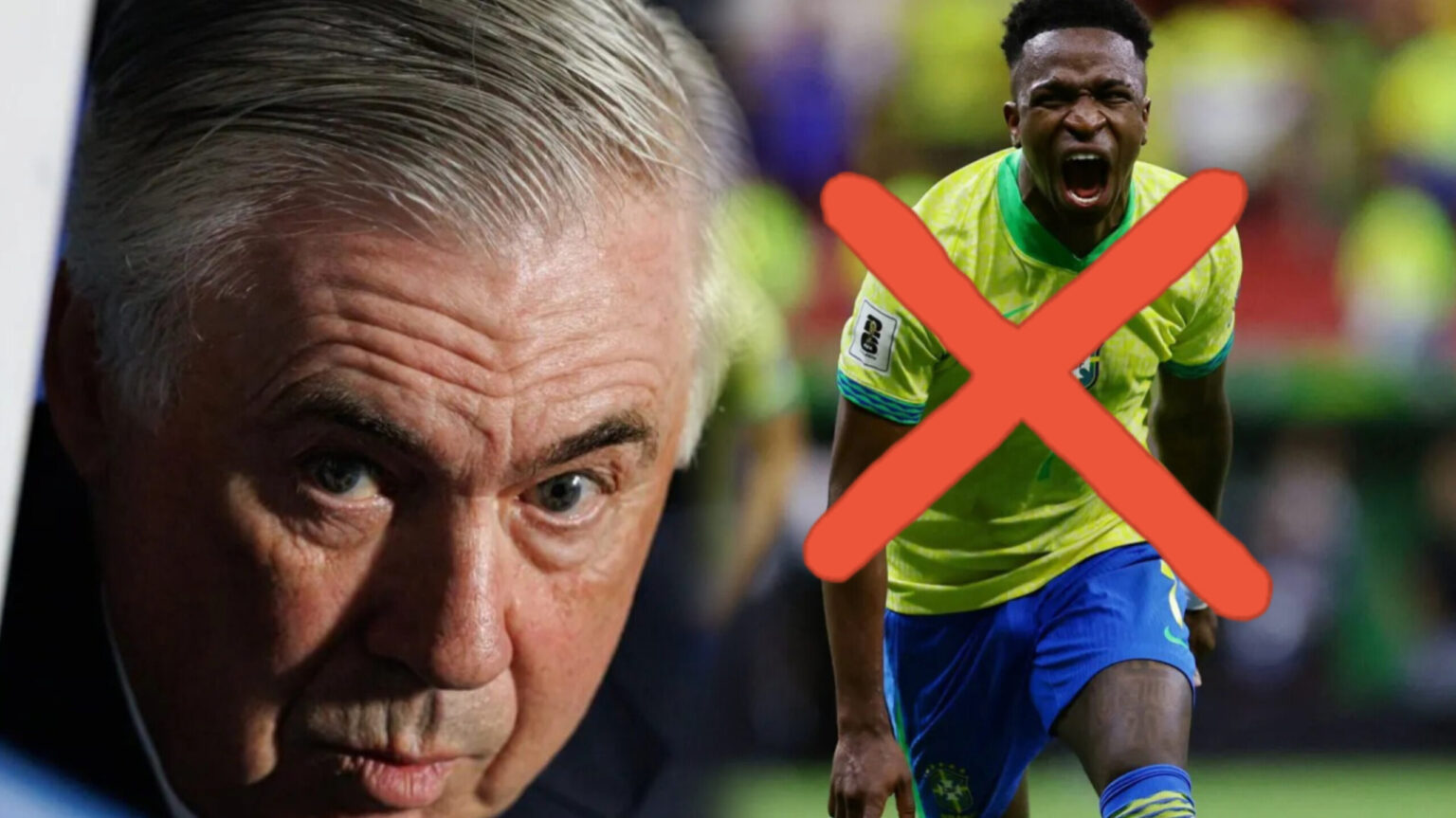Sport
Carlo Ancelotti scuttles his departure to Brazil: here’s why

Carlo Ancelotti was set to embark on a new journey—one that would have taken him across the Atlantic to the spiritual home of football, Brazil. Negotiations were advanced, a verbal agreement had been struck, and the Brazilian Football Federation was preparing to welcome the most decorated coach in modern football history. But in a dramatic twist that stunned both Spanish and South American media, Ancelotti pulled the plug on the deal.
The decision, which broke late Tuesday evening, left fans and officials alike scrambling for answers. Why would a coach of Ancelotti’s stature reject an opportunity to lead the Seleção, especially after Real Madrid’s disheartening Copa del Rey final loss to bitter rivals Barcelona? The answer lies in a complex web of personal concerns, professional expectations, and a timely intervention from Saudi Arabia.
Ancelotti had initially been keen on the idea of managing Brazil. After all, this was a job he had long admired. A chance to coach a footballing powerhouse, filled with generational talents like Vinícius Júnior, Rodrygo, and Endrick, was not something he took lightly. But his enthusiasm began to wane as the practical realities of such a move began to surface.
One of the first red flags was the lifestyle transition. Life in Brazil, while vibrant and culturally rich, posed several challenges for Ancelotti and his close-knit entourage. Sources close to the Italian coach revealed that his family expressed serious concerns about relocating, citing safety, distance from Europe, and language barriers.
Then came the instability within the Brazilian Football Federation. Behind the scenes, the Federation has been going through turbulent times marked by leadership changes and internal divisions. Ancelotti, known for his calm and methodical approach, reportedly grew wary of entering such an uncertain environment—especially given the immense pressure associated with managing Brazil’s national team.
Pressure that, by all accounts, has only intensified in recent years. Brazil’s failure to meet expectations in major tournaments has placed the coaching seat under a constant spotlight. The legendary yellow jersey may inspire millions, but it also weighs heavily on the shoulders of its caretakers. Ancelotti wanted time—specifically, until August—to properly assess the role and prepare. However, the Brazilian federation was adamant: they wanted a signature in May.
The impasse was irreconcilable. The Brazilian officials saw his request as a lack of commitment, while Ancelotti saw their urgency as impatience. With both sides unwilling to compromise, the deal collapsed.
But just as one door closed, another opened—this time from the Middle East. In what appears to be more than just a coincidence, Saudi Arabia swiftly entered the picture. According to reports from Relevo, Saudi club Al Hilal—already home to superstars like Neymar—made a sensational offer to lure Ancelotti into their ambitious football project.
The proposed deal was staggering. A salary package worth €50 million per year was put on the table—nearly double what Brazil had offered. The Saudi Public Investment Fund, the powerhouse behind the kingdom’s sporting revolution, saw in Ancelotti the perfect figure to add prestige and strategic intelligence to their growing football empire.
While Ancelotti hasn’t accepted the Saudi offer outright, the sheer scale of it has given him plenty to think about. For now, though, the Italian tactician remains at the helm of Real Madrid, even as his future continues to hang in the balance.
Real Madrid president Florentino Pérez has also played a crucial role in this turnaround. Sources suggest that Pérez was never fully comfortable with the idea of Ancelotti negotiating with Brazil mid-season, especially after the Copa del Rey disappointment. The president, keen to keep the club focused during a critical stretch of the campaign, reportedly urged Ancelotti to reconsider.
And reconsider he did.
Despite initial plans to step down at the end of the season, Ancelotti may now extend his stay—at least until after the FIFA Club World Cup scheduled for July. This competition, a chance for Real Madrid to assert their dominance on the global stage once more, holds symbolic value for both coach and club.
As for Real Madrid’s long-term plans, the name of Xabi Alonso continues to circulate. The former midfield general, now excelling as a coach at Bayer Leverkusen, is widely seen as Pérez’s favored successor. But the unexpected change in Ancelotti’s future could force the club to wait a little longer.
Meanwhile, the locker room at Valdebebas has reportedly responded positively to the news. Ancelotti, despite the recent cup defeat, remains highly respected by the players. Many, including veterans like Luka Modrić and Toni Kroos, value his steady leadership and deep tactical wisdom.
Still, uncertainty looms large. Will Ancelotti indeed accept the Saudi riches? Could Brazil come back with a revised offer? Or might he decide to retire on his own terms after a final glorious campaign with Madrid?
For now, Carlo Ancelotti is staying put. But in football—as in life—nothing is ever truly final. One thing is certain: the man once destined for Brazil now has options, and the football world will be watching closely to see which path he ultimately chooses.
-

 Sport9 months ago
Sport9 months ago“I’m not trying to criticize Ancelotti, but I’m not happy with him for benching that player”: Bellingham Expresses Frustration Over Ancelotti’s Tactical Decision
-

 Sport9 months ago
Sport9 months agoBREAKING: Manchester City vs Liverpool Clash Cancelled! Title Race Takes a Twist
-

 Sport9 months ago
Sport9 months agoArsenal Poised for January Swoop on €70 Million Star Dusan Vlahovic
-

 Sport9 months ago
Sport9 months agoWHAT ON GOD’S GREEN EARTH DID WE JUST SEE?!
-

 Sport9 months ago
Sport9 months agoReal Madrid: Carlo Ancelotti’s Surprising Revelations About an Unexpected Quality of Vinicius
-

 Sport9 months ago
Sport9 months agoBREAKING: Arsenal’s Champions League Quarterfinal Opponent Revealed After Monaco’s Dramatic Win – Tough Challenges Await Arteta’s Men
-

 Sport9 months ago
Sport9 months agoChelsea Players Facing Suspension as Yellow Cards Mount
-

 Sport9 months ago
Sport9 months agoKey Arsenal Player Set for Return as Gunners Face Struggling Everton
